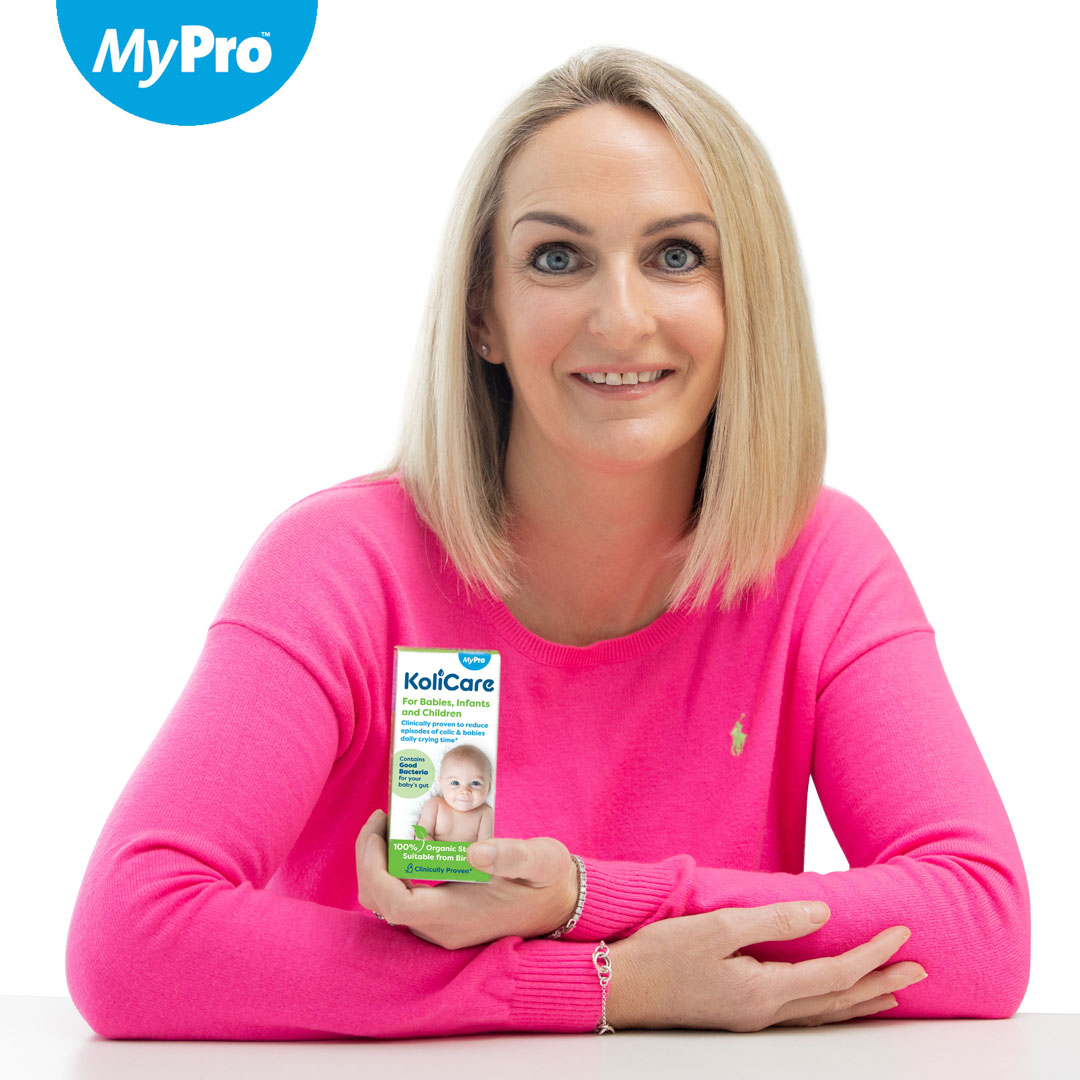KoliCare Top Tips


Top Tips from the KoliCare team
Does your baby have colic, don’t worry, you are not alone! The most important thing to remember is to ask for help.
While the excessive crying will resolve with time, managing colic adds significant stress to caring for your precious newborn child. No one wants to see their little one upset or stressed. Yes, it can affects the whole house, but try to stay calm, monitor your baby’s routine, look for patterns and triggers and remember to ASK FOR HELP. The saying ‘It takes a village to raise a child’ is true. We understand every mother’s situation is different and every child is different too. Your Health Care Professionals are available to advice and point you in the right direction. It can also be beneficial to look for a local mum and baby group that suits you. They offer support, advice and in most cases are available to advice remotely too.
Your Public Health Nurses and Doctors will usually advise you. Here are just a few suggestions from the team at KoliCare to help sooth your colic baby;
- – Cuddle or hold them your little one when they are crying a lot.
- – Hold or site them upright during feeding to prevent them swallowing air.
- – Always wind them after each feed. Try a few different positions and see which one works best for you and your baby.
- – Try gently rocking them over your shoulder.
- – Lay them across your knee and gentle rub their back.
- – Soak them in a nice warm bath and gentle rub their tummy in clockwise motion.
- – Try some gentle white noise in the background to distract them when crying.
- – Push them in their pram or put them in their car seat and bring them for a drive.
- – Keep feeding your baby as usual.
Here are just a few suggestions on how you can create a calming environment and/or routine for you baby.
- – Prepare a nice warm bath for you and your baby.
- – Skin-to-skin contain (in any form) is very beneficial for any baby.
- – Enjoy giving them a gentle infant massage. Check with your paediatrician before using any oils or lotions on your baby.
- – Try laying them on their back (next to you) in a dark, quiet room.
- – Try swaddling them snuggly in a blanket. It might seem like you are putting them into a straitjacket. However, to a crying, fussy baby, it is almost like being back in their mothers womb. Wrap it snuggly so they can’t wriggle their arms and legs out free. Ensure to always place them on their back. You can swaddling when your baby is able to roll over on their own.
- – Lay them across your lap and gently rub their back, ensuring their head is support with your other hand.
- – Wear a sling. In many cultures, baby’s spend most of the day on their mothers’ backs or chests in a sling. A colicky baby in a sling or carrier can snuggle up close to their mum, hear their heartbeat, hear your voice, smell you and with luck, they may be lulled to sleep by your movement. Plus, slings can give your arms a rest or free a hand to fix a sandwich.
- – Put a warm water bottle on your baby’s belly. It goes without saying, to only use warm what and not hot/boiling water.
- – If you are open to a soother/pacifier, have them suck on one.

We often cradle a colicky baby face-up, which may not give our babies any relief. Try changing positions. Hold them face down, with your hand under their belly (supporting them) and their head resting on your forearm. Similar to the image shown. The pressure on their tummy can help relieve uncomfortable gas.
- – Try to feed in a calm and comfortable position for you both you and your baby.
- – Sit your baby up when bottle feeding as straight as possible. This will help minimise the amount of air they swallow. Try to make sure the milk fills the teat and there are no air pockets. You could try using an anti-colic bottle to see if that helps.
- – As the cause of colic are not fully known, many experts believe a contributing factor may include the baby’s food. It may be because babies find it harder to digest food when they’re young. Or they may be crying because they have problems with food allergies, such as a cows’ milk allergy.
- – Perhaps change their formula to see if the colic symptoms improve. It is advised to seek advice from your Health Care Professional before changing your baby’s formula.
- – Be patient as you eliminate or change your baby’s formula. It can take over a week to see results.
- – Other possible foods that your baby may react to are nuts, soy, eggs, caffeine, garlic, spicy foods, and shellfish.
- – Ask for help, there are many mum and baby groups which offer support.
- – If your baby’s symptoms persist, talk to your healthcare professional. A specialised formula may be advised.
While the excessive crying will resolve with time, managing colic adds significant stress to caring for your precious new born child. No one wants to see their little one upset or stressed. Breastfeeding takes practice especially for first time mums and remember every baby is different. Here are just a few tips which may help:
Feeding Position:
- – Try to feed in a calm and comfortable position where your baby is sitting up as straight as possible. This will help minimise the amount of air they swallow.
- – Ensure you have the correct latch-on position.
- – If you are expressing and/or topping up with expressed milk in a bottle, the same applies. Remember to try to make sure the milk fills the teat and there are no air pockets. You could try using an anti-colic bottle to see if that helps.
- – If you are concerned or have questions about breastfeeding positions or your babies latch, seek advice and help. There are several breastfeeding groups across the country. Your local hospital may have a lactation consultant, or your Public Health Nurse (PHN) may be a certified lactation consultant. There are also independent lactation consultants you could seek advice from. Here are just a few links which you might find helpful:
Mothers Diet:
- – As the cause of colic in little ones are not fully known, many experts believe a contributing factor may include the mother’s diet.
- – The foods consumed can make its way to your baby through breast milk. In some cases, babies can have an allergic reaction to certain foods groups. The most common allergies include cow’s milk and dairy products, particularly if there is a family history.
- – Keep track of what you are eat and drink.
- – Try to remove dairy products from your diet to see if the colic symptoms improves. Other possible foods that your baby may react to are nuts, soy, eggs, caffeine, garlic, spicy foods, and shellfish.
- – Be patient as you eliminate items from your diet. It can take over a week to see results. Research on the probiotic Lactobacillus reuterishows that it may help reduce colic in breastfed infants.3
- – You do not need to stop nursing.1Breastfeeding is not a cause of colic, and babies who take infant formula get colic, too. Switching to formula may not help and may even make the situation worse.
- – Avoid caffeine and chocolate, which act as stimulants.
- – Avoid dairy products and nuts, in case your baby is allergic to them.
- – Ask your doctor if any medicines you’re taking could be causing the problem.
Caring for a baby with colic, night after night is hard on parents. It is OK to feel stressed, overwhelmed, frustrated, and exhausted. If nothing you try seems to work at that time, it is ok to take a break. Don’t be hard on yourself. Hand the baby to your partner, friend, a family member, or a sitter. If this is not an option, then remember that it is OK to let the baby cry in their crib for a little bit while you gather yourself.
- Almeida, A. et al. A new genomic blueprint of the human gut microbiota. Nature 568, 499–504 (2019). 2. Martin, R. et al. Early-Life Events, Including Mode of Delivery and Type of Feeding, Siblings and Gender, Shape the Developing Gut Microbiota. PLoS One 11, e0158498 (2016). 3. Kato, K. et al. Age-Related Changes in the Composition of Gut Bifidobacterium Species. Curr. Microbiol. 74, 987–995 (2017). 4. Avershina, E. et al. Bifidobacterial succession and correlation networks in a large unselected cohort of mothers and their children. Appl. Environ. Microbiol. 79, 497–507 (2013). 5. Arboleya, S., Watkins, C., Stanton, C. & Ross, R. P. Gut bifidobacteria populations in human health and aging. Frontiers in Microbiology vol. 7 (2016). 6. Arboleya, S., Stanton, C., Ryan, C. A., Dempsey, E. & Ross, P. R. Bosom Buddies: The Symbiotic Relationship Between Infants and Bifidobacterium longum ssp. longum and ssp. infantis . Genetic and Probiotic Features. Annu. Rev. Food Sci. Technol. 7, 1–21 (2016). 7. Zivkovic, A. M., German, J. B., Lebrilla, C. B. & Mills, D. A. Human milk glycobiome and its impact on the infant gastrointestinal microbiota. Proc. Natl. Acad. Sci. U. S. A. 108, 4653–4658 (2011). 8. Yamada, C. et al. Molecular Insight into Evolution of Symbiosis between Breast-Fed Infants and a Member of the Human Gut Microbiome Bifidobacterium longum Article Molecular Insight into Evolution of Symbiosis between Breast-Fed Infants and a Member of the Human Gut Microbiome Bifidobacterium longum. Cell Chem. Biol. 24, 515–524 (2017). 9. Milani, C. et al. The First Microbial Colonizers of the Human Gut: Composition, Activities, and Health Implications of the Infant Gut Microbiota. Microbiol. Mol. Biol. Rev. 81, (2017). 20. Biagioli, E., Tarasco, V., Lingua, C., Moja, L. & Savino, F. Pain-relieving agents for infantile colic. Cochrane Database of Systematic Reviews vol. 2016 (2016). 21. Chen K, Liu C, Li H, Lei Y, Zeng C, Xu S, Li J, S. F. The efficacy of 3 week’s daily supplementation with a two-combined probiotic strains on infant colic. Manuscr. Submitt. 22. Santas J, Fuentes MC, Tormo R, Guayta-Escolies R, Lazaro E, C. J. Pediococcus pentosaceus CECT 8330 and bifidobacterium longum CECT 7894 show a trend towards lowering infantile excessive crying syndrome in a pilot clinical trial. Int. J. Pharma Bio Sci. 6, 458–466 (2015). 23. Tintore M, C. J. Probiotic treatment with ABKOLICARE causes changes in the microbiota which correlate with a reduction in crying time. Int. J. Phar ma Bio Sci. 8, 281–288 (2017). 24. Navarro-Tapia E, Sticco M, Astó E, Aguilo M,

